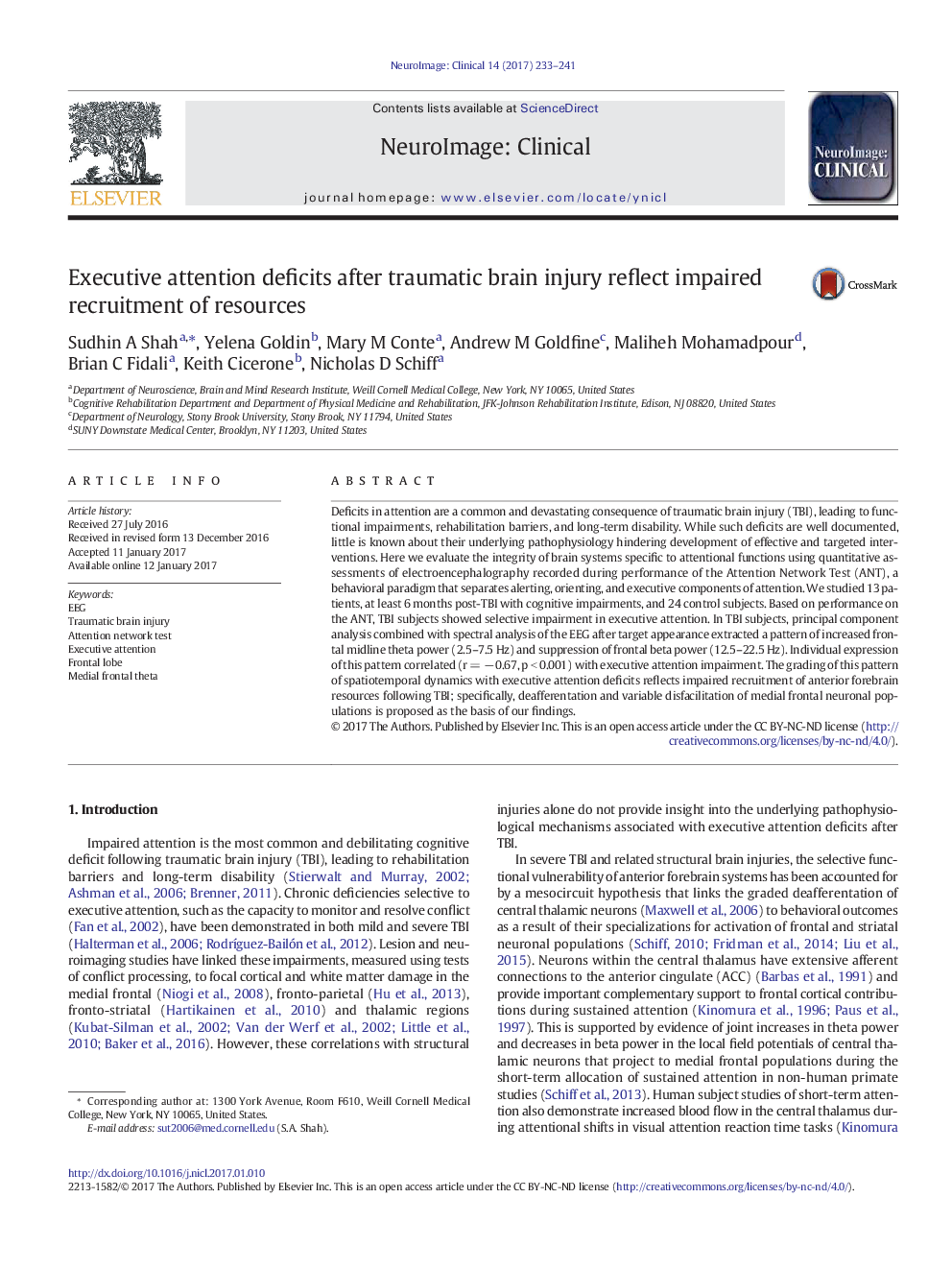ترجمه فارسی عنوان مقاله
نقص توجه اجرایی پس از آسیب مغزی آسیب دیده، منعکس کننده استخدام منابع است
عنوان انگلیسی
Executive attention deficits after traumatic brain injury reflect impaired recruitment of resources
| کد مقاله | سال انتشار | تعداد صفحات مقاله انگلیسی |
|---|---|---|
| 153950 | 2017 | 9 صفحه PDF |
منبع

Publisher : Elsevier - Science Direct (الزویر - ساینس دایرکت)
Journal : NeuroImage: Clinical, Volume 14, 2017, Pages 233-241

